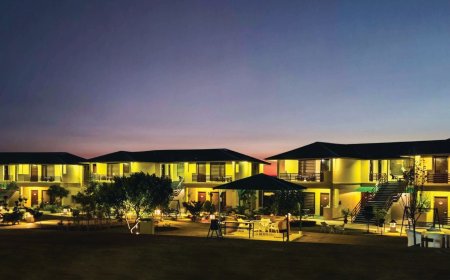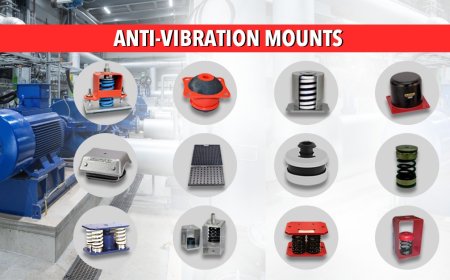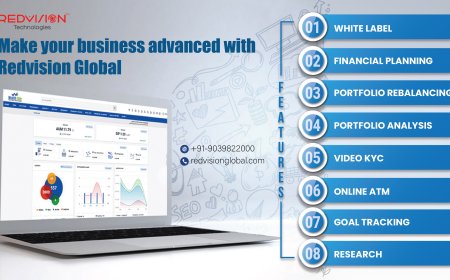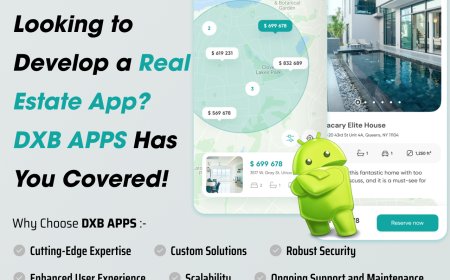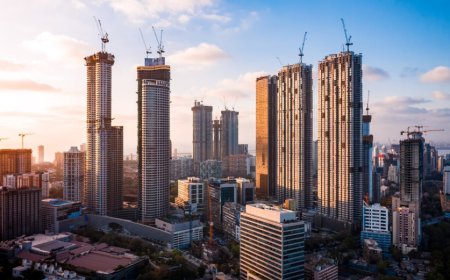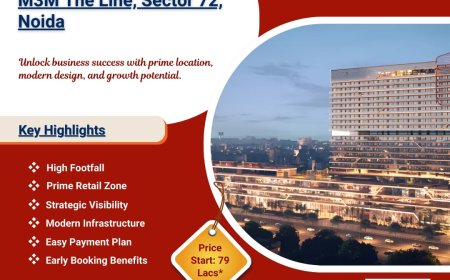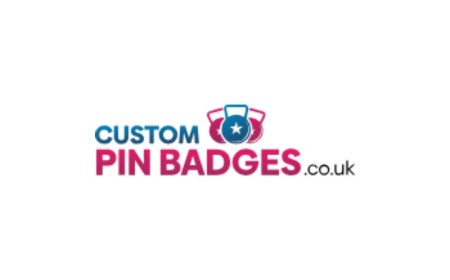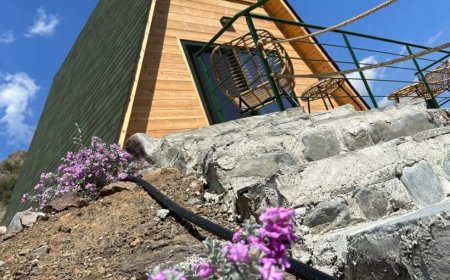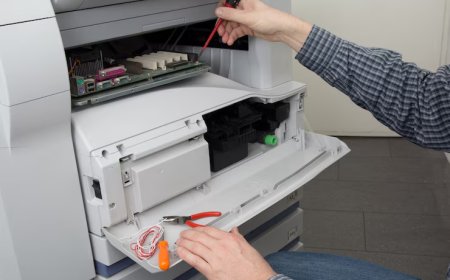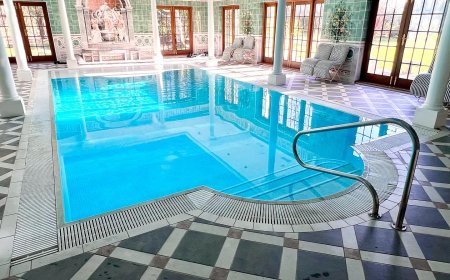How to Network at Columbus Washington Events
How to Network at Columbus Washington Events Networking is one of the most powerful yet underutilized tools for professional growth, business development, and community building. In Columbus, Washington—a growing hub of innovation, small business entrepreneurship, and regional economic activity—networking isn’t just beneficial; it’s essential. Whether you’re a local entrepreneur, a remote worker r
How to Network at Columbus Washington Events
Networking is one of the most powerful yet underutilized tools for professional growth, business development, and community building. In Columbus, Washington—a growing hub of innovation, small business entrepreneurship, and regional economic activity—networking isn’t just beneficial; it’s essential. Whether you’re a local entrepreneur, a remote worker relocating to the area, a recent graduate, or a professional seeking new partnerships, learning how to network effectively at Columbus events can open doors you didn’t even know existed.
Columbus, WA, though smaller than major metropolitan areas, boasts a tight-knit, highly engaged community of business leaders, nonprofit organizers, educators, and creatives. Events here range from chamber of commerce mixers and industry-specific meetups to farmers markets with pop-up vendor booths and community workshops. The key to success isn’t attending the most events—it’s attending the right ones, preparing intentionally, and following up meaningfully.
This guide will walk you through a comprehensive, step-by-step approach to mastering the art of networking in Columbus, Washington. You’ll learn practical strategies, proven best practices, essential tools, real-world examples from local professionals, and answers to frequently asked questions—all tailored to the unique culture and rhythm of this Pacific Northwest community.
Step-by-Step Guide
Step 1: Understand the Columbus Networking Landscape
Before you show up to your first event, take time to research the local ecosystem. Columbus, WA, is part of Clark County and sits just across the Columbia River from Portland, Oregon. While it shares some cultural and economic ties with the larger metro area, it maintains its own distinct identity: family-oriented, community-driven, and increasingly tech-savvy.
Key networking hubs include:
- The Columbus Chamber of Commerce
- Clark County Small Business Development Center (SBDC)
- Local libraries and community centers hosting workshops
- Monthly “Columbus Coffee & Connections” gatherings
- Annual events like the Columbia River Economic Summit and the Southwest Washington Tech Expo
Identify which groups align with your goals. Are you looking for potential clients? Partners? Mentors? Investors? Each group caters to different needs. For example, the SBDC is ideal for startups seeking guidance, while chamber mixers are better for broad relationship-building.
Step 2: Define Your Networking Goals
Networking without a clear objective is like sailing without a compass. Ask yourself:
- What do I want to achieve in the next 3–6 months?
- Who are the 3–5 people I need to meet to get there?
- What value can I offer others in return?
Don’t just say, “I want to meet people.” Be specific. Examples:
- “I want to connect with three local marketing consultants who work with healthcare providers.”
- “I want to find a co-founder for a sustainable home goods brand.”
- “I want to learn about funding opportunities for women-owned businesses in Clark County.”
Writing these down helps you focus your conversations and measure success. At the end of each event, ask yourself: “Did I make progress toward my goal?”
Step 3: Choose the Right Events
Not every event is worth your time. Prioritize quality over quantity. Here’s how to select:
Look for events with:
- Clear agendas or themes
- Attendee lists (if available)
- Organizers who are active on LinkedIn or local Facebook groups
- Opportunities for structured interaction (not just open mingling)
Recommended recurring events in Columbus:
- First Thursday Networking at the Columbus Community Center (monthly)
- Women in Business Roundtables hosted by the Clark County Chamber
- Startup Saturday at the Innovation Hub (biweekly)
- Local Art & Business Crawl (quarterly, features makers and retailers)
Use platforms like Eventbrite, Meetup, and the Columbus Chamber’s website to find upcoming events. Subscribe to newsletters from the Clark County Economic Development Council—they often feature exclusive invites.
Step 4: Prepare Your Personal Pitch
Your personal pitch is your 15–30 second introduction that answers: Who are you? What do you do? And what are you looking for?
A weak pitch: “Hi, I’m John. I work in IT.”
A strong pitch: “Hi, I’m John. I help local clinics streamline their patient scheduling with cloud-based software. I’m currently looking to partner with physical therapists or wellness centers who want to reduce no-show rates. If you know anyone in that space, I’d love an intro.”
Practice your pitch until it sounds natural—not rehearsed. Include:
- Your name and role
- Your niche or specialty
- A specific request or invitation to connect
Also prepare a “reverse pitch”—a question you can ask others to spark conversation. Examples:
- “What’s the biggest challenge you’ve faced growing your business this year?”
- “How did you first get involved in the Columbus community?”
- “What’s something you’re excited about that most people don’t know yet?”
Step 5: Arrive Early and Engage Strategically
Arriving early gives you a critical advantage. You’ll have the chance to connect with organizers, meet early arrivals before crowds form, and position yourself as a consistent, reliable presence.
When you arrive:
- Introduce yourself to the host or organizer. Say: “Thanks for putting this together—I really appreciate the effort.”
- Scan the room. Look for people standing alone or in small groups.
- Approach with a smile and open body language. Avoid crossing your arms or staring at your phone.
- Use the “three-step approach”: Smile → Say name → Ask a question.
Don’t rush. Spend 5–7 minutes with each person. Listen more than you talk. People remember how you made them feel, not what you said.
Step 6: Ask for Introductions
One of the most powerful networking tactics is asking for introductions. If you meet someone who seems well-connected, don’t hesitate to say:
“You seem to know a lot of people in the local tech scene. Is there anyone here you think I should meet?”
Or after a conversation:
“I’d love to connect with someone who’s done similar work with sustainable packaging. Do you know anyone I could reach out to?”
This works because people love to help—and when they introduce you, they become invested in your success. It also builds trust and reciprocity.
Step 7: Collect Contact Information Thoughtfully
Don’t just hand out business cards like candy. If you’re using digital tools (like LinkedIn QR codes or vCards), make sure they’re professional. If you’re using paper cards, ensure they include:
- Your full name
- Your title and company
- Your website or portfolio
- Your phone number and email
- A QR code linking to your LinkedIn profile
When exchanging contact info, write a quick personal note on the back of their card or in your phone: “Met at First Thursday—talked about eco-friendly packaging solutions. Follow up re: local recycling initiative.”
This small act transforms a random contact into a memorable connection.
Step 8: Follow Up Within 48 Hours
Follow-up is where most people fail. If you don’t follow up, your connection fades. Within two days of the event, send a personalized message.
Example email:
Hi [Name],
It was great meeting you at the Columbus Coffee & Connections event last night. I really enjoyed hearing about your work with the Clark County Green Business Initiative—I’ve been looking for partners to help us expand our compostable packaging line into local schools. Would you be open to a 15-minute call next week? I’d love to hear your thoughts.
Thanks again, and hope to see you at the next gathering!
Best,
[Your Name]
Personalization is non-negotiable. Never copy-paste. Reference something specific from your conversation.
Step 9: Nurture Relationships Over Time
Networking isn’t transactional—it’s relational. Treat every connection like a seed you’re planting.
Ways to nurture:
- Share an article relevant to their work
- Tag them in a LinkedIn post about an event you both attended
- Invite them to a smaller coffee meet-up
- Recommend them to someone else in your network
Set calendar reminders to check in every 6–8 weeks. A simple “How’s business going?” message goes a long way.
Step 10: Give Before You Receive
The most successful networkers in Columbus are those who give first. Offer help without expecting anything in return.
Examples:
- Connect two people who could benefit from knowing each other
- Share your skills—for example, offer to review a website or help with social media
- Recommend a local vendor to a friend
- Volunteer to help organize an event
This builds goodwill and positions you as a valuable member of the community—not just someone looking for opportunities.
Best Practices
Be Authentic, Not Transactional
People in Columbus value sincerity. If you come across as overly salesy or focused only on what you can get, you’ll be remembered negatively. Focus on building trust, not closing deals.
Dress for the Occasion
Columbus events vary in formality. Chamber mixers lean business casual. Tech expos may be more relaxed. When in doubt, dress slightly better than the expected norm. A well-fitted shirt, clean shoes, and minimal accessories signal professionalism.
Practice Active Listening
Listening is the most underrated networking skill. Maintain eye contact. Nod. Paraphrase what they say: “So if I understand correctly, you’re trying to reduce supply chain delays by partnering with local distributors?”
This shows respect and helps you remember details for follow-up.
Use Names Frequently
People love hearing their own names. Use them naturally: “That’s impressive, Sarah,” or “Thanks for sharing that, Mike.” It builds instant rapport.
Limit Phone Use
Even glancing at your phone during a conversation sends a signal that you’re distracted. Put your phone on silent and in your pocket or bag. If you must check it, excuse yourself politely.
Attend Events Regularly
Consistency builds familiarity. Showing up month after month makes you a known face. People begin to seek you out. That’s the ultimate goal.
Join a Small Group
Instead of trying to meet everyone, aim to form one or two deeper connections per event. A strong relationship with two people is worth more than 20 superficial exchanges.
Be Mindful of Local Culture
Columbus residents value humility, hard work, and quiet competence. Avoid bragging. Instead, focus on collaboration, shared goals, and community impact.
Handle Rejection Gracefully
Not everyone will respond. Not every conversation will click. That’s normal. Don’t take it personally. Move on with kindness. You’re building a network, not collecting trophies.
Track Your Progress
Keep a simple spreadsheet or journal:
- Name
- Event attended
- Key topic discussed
- Follow-up date
- Next step
This helps you avoid repeating yourself and keeps relationships moving forward.
Tools and Resources
LinkedIn is your digital networking hub. Optimize your profile with a professional photo, clear headline, and detailed experience. Join local groups:
- Clark County Entrepreneurs
- Columbus Business Network
- SW Washington Tech & Innovation
Engage daily: comment on posts, share articles, congratulate connections on milestones.
Meetup.com
Search for “Columbus WA” to find niche groups: Digital Nomads, Female Founders, Nonprofit Volunteers, etc. Many events are free or low-cost.
Eventbrite
Filter by location: “Columbus, WA.” Set alerts for recurring events. Use the “My Events” tab to track attendance and follow-ups.
Google Calendar + Reminders
Schedule follow-ups immediately after each event. Set reminders for 3 days, 2 weeks, and 2 months out.
Notion or Airtable
Create a simple CRM for your network. Include columns for: Name, Company, Contact Info, Last Contact, Notes, Next Action. Free templates are available online.
Local Resources
- Clark County Chamber of Commerce – Hosts monthly mixers and workshops. Website: clarkcountywa.org/chamber
- Clark County SBDC – Free business advising. Website: clarkcountysbdc.org
- Columbus Public Library – Hosts free business seminars and coworking hours.
- Washington Small Business Development Center Network – Statewide support. Website: wsbdc.org
Business Card Apps
Use apps like CamCard, HiHello, or LinkedIn’s built-in QR code scanner to digitize contacts on the spot. Avoid outdated paper-only systems.
Podcasts and Local Media
Listen to “The Clark County Conversation” podcast or read the Columbus Chronicle to stay informed about local business trends and upcoming events.
Real Examples
Example 1: Maria, the Local Baker
Maria started selling artisan breads at the Columbus Farmers Market. She wanted to expand into local cafes but didn’t know how to approach owners.
She attended the “Local Food Producers Network” meetup. Instead of handing out flyers, she brought samples. She asked cafe owners: “What’s the biggest challenge you face sourcing local baked goods?”
One owner mentioned inconsistent delivery times. Maria responded: “I could deliver twice a week—would that help?”
She followed up with a handwritten note and a loaf. Three weeks later, she got her first cafe contract.
Today, Maria supplies five local businesses and hosts monthly baking workshops at the library.
Example 2: Jamal, the Remote Software Developer
Jamal moved to Columbus from Seattle to work remotely. He felt isolated and wanted to connect with other tech professionals.
He joined the “Startup Saturday” group. He didn’t pitch his skills—he asked questions: “What tools are you using to manage remote teams?” “Have you tried Notion for project tracking?”
He met a local nonprofit director who needed help building a volunteer scheduling app. Jamal offered to build it pro bono.
That project led to a paid contract with another nonprofit, then to a job offer from a Portland-based startup looking to hire locally.
Jamal now mentors new remote workers and speaks at SBDC workshops.
Example 3: Lisa, the Retired Teacher Turned Entrepreneur
Lisa wanted to start a tutoring business for elementary students. She didn’t know where to begin.
She attended a “Small Business Bootcamp” hosted by the library. She sat next to a retired school administrator. They talked about curriculum gaps.
Lisa asked: “Would you be willing to review my lesson plans?”
The administrator said yes. Then introduced her to a PTA president. That led to a pilot program at a local elementary school.
Lisa now runs a thriving after-school program and partners with the county’s education office.
Example 4: The Power of the “Two-Handed Handshake”
At a Columbus Chamber event, a young entrepreneur named Daniel met a local bank manager. He didn’t just shake hands—he made eye contact, smiled, and said: “I really appreciate you taking the time to talk with me.” Then he used both hands to shake.
The manager later told a colleague: “That kid was the only one who made me feel like I mattered.”
Three months later, Daniel secured a small business loan—and the manager became his advisor.
FAQs
What’s the best time of year to network in Columbus, WA?
Spring and fall are ideal. Summer is busy with outdoor events, and winter can be slower—but that’s when people are more likely to attend indoor networking events. Avoid major holidays like Thanksgiving and Christmas week.
Do I need to pay to attend networking events in Columbus?
Many are free or low-cost ($5–$15). Chamber events often have member discounts. Always check if a nonprofit or government entity is sponsoring the event—they’re usually free.
What if I’m shy or introverted?
That’s okay. Many successful networkers are introverts. Focus on quality over quantity. Arrive early, prepare questions, and leave after 1–2 meaningful conversations. It’s better to have two deep talks than ten surface ones.
Can I network effectively online instead of in person?
Online is helpful, but in-person events in Columbus create stronger bonds. People here value face-to-face trust. Use LinkedIn to supplement, not replace, real-world connections.
How do I know if a networking event is worth attending?
Check the organizer’s credibility. Look for past attendee reviews. Ask: “Will I meet people who can help me reach my goal?” If the answer is unclear, skip it.
What if I forget someone’s name?
It happens. Say: “I’m so sorry—I’ve met so many great people tonight, I’m trying to remember everyone. Could you remind me of your name again?” Most people appreciate the honesty.
Should I bring business cards?
Yes, but make them professional. Include your name, role, website, and a QR code to your LinkedIn. Avoid generic templates. A custom design shows care.
How long should I stay at an event?
Plan for 60–90 minutes. Stay long enough to have 2–3 meaningful conversations. Leaving too early makes you seem disinterested; staying too long can feel forced.
What’s the biggest mistake people make when networking in Columbus?
Trying to sell something immediately. People here want to know you first—before they do business with you. Build trust before you ask for anything.
Can I start my own networking group?
Absolutely. The Columbus community welcomes new initiatives. Start small: invite five people to coffee. Share your purpose clearly. Use Facebook Events or Meetup to grow it.
Conclusion
Networking in Columbus, Washington isn’t about collecting contacts—it’s about cultivating community. It’s about showing up consistently, listening deeply, and giving generously. The people you meet at a local coffee meetup today could become your mentor, client, partner, or friend tomorrow.
The beauty of Columbus is its size. It’s big enough to offer opportunity, small enough that your effort is noticed. When you invest in relationships here, you’re not just expanding your network—you’re helping build the future of this community.
Start today. Pick one event. Prepare your pitch. Show up early. Ask one thoughtful question. Follow up within two days. That’s all it takes to begin.
Over time, your presence will become a quiet force—a trusted name, a reliable connector, a valued voice. And in a place like Columbus, that’s the most powerful currency of all.








